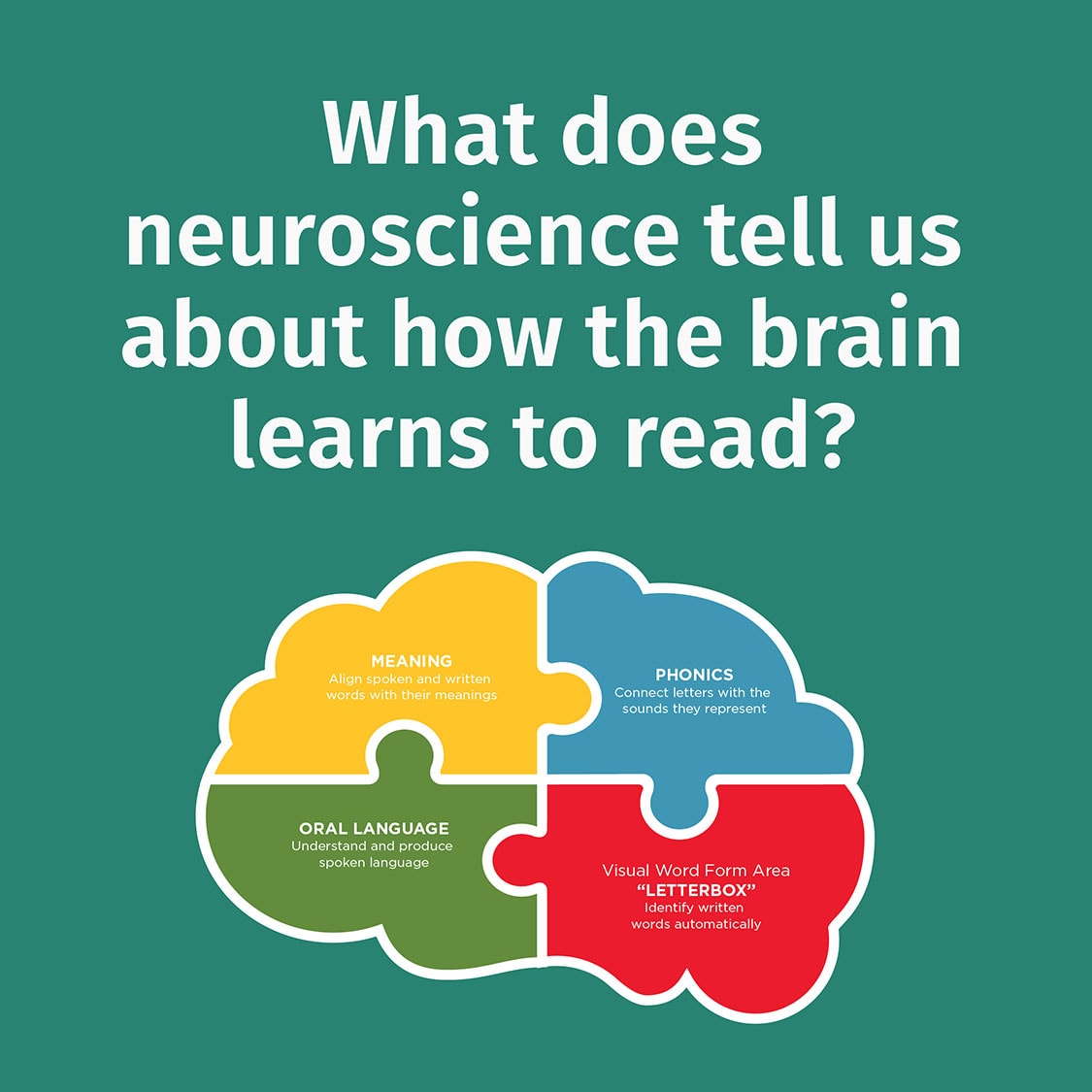1
What does neuroscience tell us about how the brain learns to read? What does educational research tell us about effective reading instruction? Learn how you can put your students on the path to reading success with the science of reading.
2
3
4
In this webinar, you’ll discover the key to helping your students read smoothly, automatically, and with expressive fluency. Explore why the development of fluency is essential and how fluent reading significantly enhances overall reading comprehension.
5
During this session, explore the pivotal role that comprehension plays in transforming reading into a lifelong learning tool. You’ll learn strategies and techniques for equipping your students with the foundational building blocks necessary to foster strong comprehension skills.
6
Explore the world of written language structure and learn how a robust grasp of language concepts can profoundly support your students on their path to becoming proficient readers. In this session, you’ll discover the pivotal role that understanding language structure plays in enhancing reading skills and fostering literacy development.
7
Join this webinar to delve into the four language domains—reading, writing, speaking, and listening. Discover effective strategies for building your students’ proficiency in each of these domains and empowering them to become skilled and confident communicators.
8
Join this session for an exclusive tour of the Waterford Reading Academy, a literacy program founded on the science of reading. Explore engaging digital student activities, immersive and inclusive stories embedded within adaptive learning paths, and an extensive array of educator resources and reports.
9
Meet the dedicated Waterford.org Professional Learning team, committed to providing you with the essential strategies and support required to teach Waterford lessons guided by the science of reading. Learn how to effectively integrate these principles into your teaching and maximize the impact of your instruction.
10
Discover the transformative potential of research-backed approaches and their role in enhancing the learning experience for both students and educators. During this webinar, explore how research plays a vital role in shaping the success of Waterford.org’s educational programs.
Learn how neuroscience informs our understanding of how children learn to read, and how you can use these findings to teach literacy skills.

Check out Waterford’s Science of Reading factsheet to explore what neuroscience tells us about how the brain learns to read.

Take a tour of Waterford Reading Academy and explore how the program incorporates the latest research, foundational principles, and best practices from the science of reading.

Watch the on-demand webinar to learn more about Waterford’s Science of Reading professional learning.